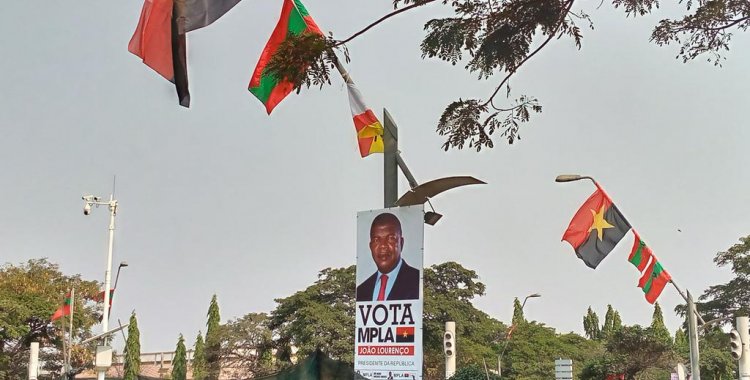"It would take a landslide victory, which does not seem to be the current trend. The most likely scenario is a tight electoral result and a period of contestation by UNITA and other opposition parties through the courts and street protests" Alex Vines told Lusa.
For the director of the Africa Program at Chatham House, a 'think-tank' based in London, the vote on 24 August will be "very competitive".
"What we can say for sure is that the MPLA will not reach the 61 percent it achieved in 2017. The result will be much shorter and, if so, we can expect a serious reaction from the opposition if the result translates into a narrow victory for the MPLA [the party in power since independence in 1975]", he added.
Alex Vines recalled that previous electoral results in Angola "were accepted and opposition parliamentarians took their seats in the National Assembly".
If there is a "tight victory" for the MPLA, "the protests could be more prolonged", he admits.
"The President of Angola and MPLA leader João Lourenço has again signaled that he will hold local elections - which will give UNITA a good opportunity to obtain electoral gains at the local level. It may be in UNITA's interest to continue to consolidate its influence at the local level and enter into a long-term race to form a government in the future", he highlighted.
As for the consequences of the death of former President José Eduardo dos Santos in the vote on 24 August, Alex Vines considers that the divisions within the MPLA "continue to heal", but believes that there will be no effect on the result.
"The MPLA tends to unite when it seeks to maintain power. There is consensus on this," he stressed.
More than 14 million Angolans, including those residing abroad, are eligible to vote on 24 August, in what will be the fifth election in Angola's history.
The 220 members of the National Assembly are elected by two methods: 130 members are proportionally elected by the so-called national constituency, and the remaining 90 seats are reserved for each of the country's 18 provinces, using the d'Hondt method, in which each one elects five parliamentarians.
Since the 2010 Constitution came into force, presidential elections have not been held, with the President and Vice-President of Angola being the first two names on the list of the most voted party in the national circle.
In the previous election, in 2017, the Popular Movement for the Liberation of Angola (MPLA) won the majority with 61.07 percent of the votes and elected 150 deputies, and the National Union for the Total Independence of Angola (UNITA) won 26, 67 percent and 51 deputies.
This was followed by the Broad Convergence for the Salvation of Angola - Electoral Coalition (CASA-CE), with 9.44 percent and 16 deputies, the Social Renewal Party (PRS), with 1.35 percent and two deputies, and the National Front for the Liberation of Angola (FNLA), with 0.93 percent and one deputy.
The National Patriotic Alliance (APN) reached 0.51 percent, but did not elect any deputy.
In addition to these political formations, in the election on 24 August are also the Humanist Party (PH) and the Nationalist Justice Party in Angola (P-Njango).







